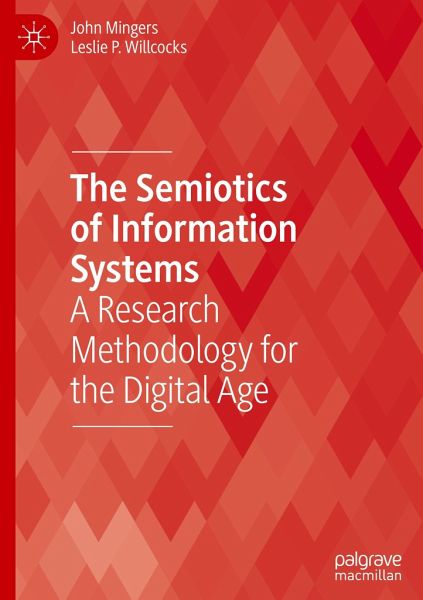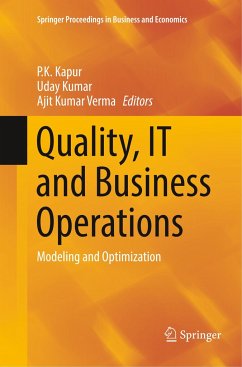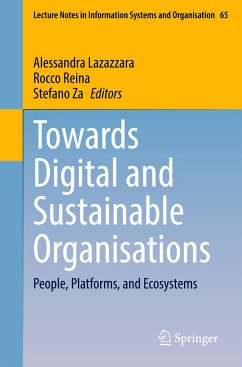
The Semiotics of Information Systems
A Research Methodology for the Digital Age
Versandkostenfrei!
Versandfertig in 6-10 Tagen
113,99 €
inkl. MwSt.
Weitere Ausgaben:

PAYBACK Punkte
57 °P sammeln!
The central concepts of information meaning, embodied cognition and semiotics are hugely relevant to contemporary organisations and personal and social lives. However, these concepts are not well understood and are frequently under-represented, misrepresented, and their importance seriously underplayed in the study of management. This is particularly noticeable in the study of the information systems and digital technologies that underpin so much of business operations, personal and social life, organisation, communication and management today.This book seeks to fill the obvious gap. It provid...
The central concepts of information meaning, embodied cognition and semiotics are hugely relevant to contemporary organisations and personal and social lives. However, these concepts are not well understood and are frequently under-represented, misrepresented, and their importance seriously underplayed in the study of management. This is particularly noticeable in the study of the information systems and digital technologies that underpin so much of business operations, personal and social life, organisation, communication and management today.
This book seeks to fill the obvious gap. It provides detailed understanding of fundamental concepts and develops a useable, integrative semiotics framework. The framework is grounded in rich social theory and philosophy, and, as the book demonstrates, provides a valuable exploratory and explanatory framework for researchers. This takes shape as a 12-step research process, that has the general features of most research methodologies but also provides distinctive rich resources for in-depth research into semiotically related phenomena. It will be of great interest to academics undertaking research in digital technologies and business model innovation, as well as scholars of research methodology, organisation studies, HRM, marketing and information systems.
This book seeks to fill the obvious gap. It provides detailed understanding of fundamental concepts and develops a useable, integrative semiotics framework. The framework is grounded in rich social theory and philosophy, and, as the book demonstrates, provides a valuable exploratory and explanatory framework for researchers. This takes shape as a 12-step research process, that has the general features of most research methodologies but also provides distinctive rich resources for in-depth research into semiotically related phenomena. It will be of great interest to academics undertaking research in digital technologies and business model innovation, as well as scholars of research methodology, organisation studies, HRM, marketing and information systems.














